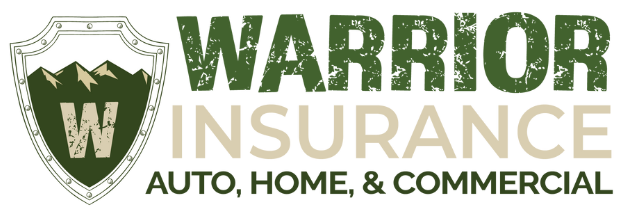Filing an auto insurance claim is one of those tasks drivers hope they never have to do. But accidents happen, and when they do, submitting a claim the right way can make a big difference in how everything plays out. Whether it’s a small fender-bender or a major collision, the details you include and those you leave out can impact how fast you get help and how much of the damage is actually covered.
Many drivers in Colorado Springs feel overwhelmed or unsure when it comes time to file. It’s totally normal to feel stressed, especially after going through a car accident. But knowing the most common mistakes people make and how to avoid them can give you an edge in a tough situation. Let’s go over the missteps that can slow down your claim or even affect your payout.
Forgetting To Document Everything
One of the simplest yet most common errors people make is forgetting to collect and save information right after an accident. It’s easy to overlook things when your heart is racing, but missing even a small detail can drag out your claim or put it at risk.
Here’s what you should be doing at the scene:
– Take clear photos of all cars involved, including the damage and license plates.
– Snap a picture of the wider scene too, including road signs, traffic signals, and skid marks.
– Write down the other driver’s name, contact info, insurance details, and license number.
– Get the names and phone numbers of any witnesses.
– Jot down your own version of events while it’s fresh in your mind.
– Save every email or letter from your insurance company after the accident.
Even if the damage looks minor, take photos before any vehicles are moved or towed. That’s your visual record in case there’s ever a question about what happened. Keeping solid documentation cuts down on back-and-forth with your insurance and shows you took the situation seriously from the start.
Delaying The Claim Filing
Time really matters when it comes to filing an auto insurance claim. Waiting too long can complicate things and may even limit your options. We understand that life doesn’t stop after an accident. There are jobs, errands, and other stressors to deal with. But taking care of your claim early helps prevent bigger problems later.
Delays can lead to:
– Unclear timelines that make it hard to provide accurate details
– Missed deadlines, since most policies require claims to be reported within a set time frame
– Reduced payouts if your insurance believes the delay affected the accuracy of the claim
Try reaching out to your insurance company within a day or two, even if you don’t yet know the full extent of the damage. Starting the process early helps get things moving, and your claims rep can help with the next steps. Each policy is different, so acting quickly protects your standing.
Giving Incomplete Information
Leaving out important facts, whether it’s by accident or not, can hurt your claim. Filing a report with missing details slows things down and may raise questions for the insurance adjuster.
Common pitfalls include:
– Only listing visible damage and not realizing something under the surface was also affected
– Mixing up dates or times, making the timeline confusing
– Forgetting to mention all drivers, passengers, or witnesses involved
Be honest and as detailed as you can from the start. If you’re unsure whether something is important, include it anyway. It’s always better to share more than to leave something out and have it cause delays. This is where keeping good documentation really helps. Having everything recorded gives you confidence in what you report.
Not Understanding Your Policy
Another big mistake is not taking time to understand your auto insurance policy. It’s easy to assume you know what’s covered just because you have coverage, but that’s not always the case.
Here’s why knowing your policy matters:
– You need to know what is and isn’t covered. Some policies don’t include things like rental vehicles or roadside assistance.
– Be clear on your deductible. This is what you’ll pay out-of-pocket before your insurance starts covering damages.
– Understand your liability limits. These define how much your insurance pays for damage to others or their property.
Reading through your policy might not be exciting, but it can save you from major misunderstandings down the road. Use a highlighter and mark anything confusing, then check with your insurance agent if you have questions. Knowing your coverage inside and out helps you avoid surprises during the claims process.
Settling Too Quickly
Getting the first offer from your insurance company might feel like a relief. But don’t rush to accept it just to get things over with. Quick settlements can mean accepting less than you’re entitled to.
Here’s why patience pays off:
– Initial estimates may not include all damage or potential medical costs
– You might feel pressure to settle from outside stress or financial concerns
Give yourself time. Talk to the claims adjuster and go over the numbers. Make sure everything checks out and nothing is left uncovered. In some cases, it might make sense to speak with someone who understands these types of claims. Waiting a little longer could help you get a better outcome.
Navigating Auto Insurance Claims in Colorado Springs
If you’re in Colorado Springs, there are a few local details that matter when handling an auto insurance claim. From weather factors to local contacts, understanding your surroundings helps you respond more efficiently.
A few things to keep in mind:
– Be sure you have the latest contact info for emergency services and repair shops
– Get to know regional insurance agents or adjusters who understand how local conditions can affect the claims process
– Winter weather can slow down emergency response and repairs, so plan accordingly
Living in an area with snow, hail, and ice means accidents may come with extra complications. Keeping this in mind can make a difference when it’s time to provide details or schedule repairs.
Safeguarding Your Interests with Warrior Insurance
Avoiding these mistakes comes down to staying informed and being ready. Solid documentation, acting quickly, providing the full story, knowing your policy terms, and carefully reviewing settlement offers all contribute to a smoother insurance claim process.
When you’re based in Colorado Springs, it’s smart to think about how local weather, services, and driving conditions play into your coverage needs. One step ahead makes a big impact on how supported and protected you feel when something goes wrong.
Working with Warrior Insurance gives you access to a team that understands both Colorado insurance and how to stand up for your best interests. If you’re unsure about any part of your policy or the claims process, we’re here to help.
FAQs
What should I do immediately after an accident?
First, make sure everyone is safe. Then call 911 if needed. Once things calm down, take photos and collect details from anyone involved.
How long do I have to file an auto insurance claim?
Each policy is different, but it’s best to file right away or within a couple of days. Waiting too long can make claims harder to process.
What documentation do I need for the claim process?
Photos, police reports, contact details, repair estimates, and all emails or phone notes from your insurance help keep everything on track.
What if the other driver is uninsured?
Tell your insurance company as soon as possible. Many policies include coverage for uninsured drivers, and your rep will guide you through the next steps.
How can Warrior Insurance assist with my claim?
We’re your point of contact when claims arise. We’ll help explain your policy, connect with your carrier, and offer advice based on your specific situation.
Stay prepared and informed to handle your auto insurance needs confidently. Whether you’re filing a claim or simply reviewing your policy, understanding the ins and outs makes a big difference in the outcome. To make sure you have coverage that fits your lifestyle in Colorado Springs, take a look at our auto insurance options. At Warrior Insurance, we’re here to help you make smart, low-stress decisions every step of the way.


